Full name:
Konrad Hermann Joseph Adenauer
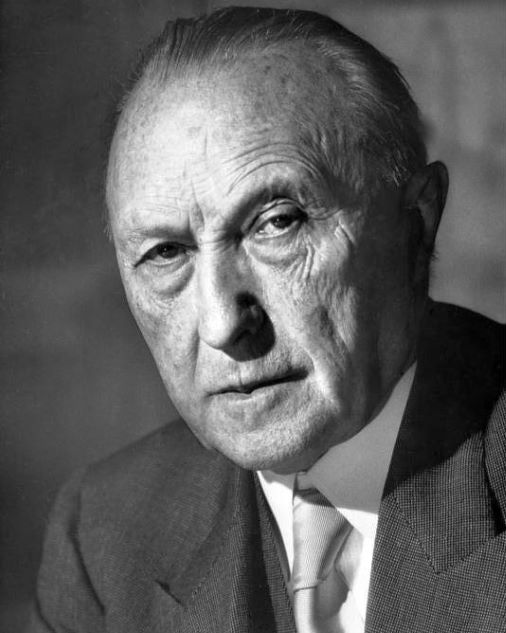
"A pragmatic democrat and tireless unifier"
Konrad Hermann Joseph Adenauer
5 January 1876, Cologne, Kingdom of Prussia, German Empire
19 April 1967 (aged 91), Rhöndorf, West Germany
- Konrad Adenauer
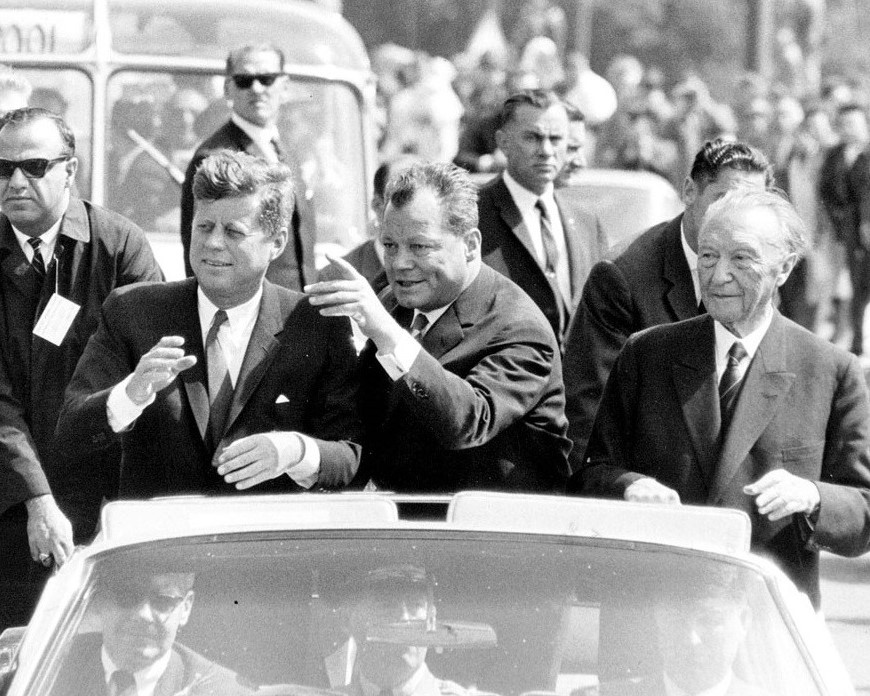
(left to right) John F. Kennedy, Willy Brandt and Adenauer, during sightseeing tour through Berlin, 1963
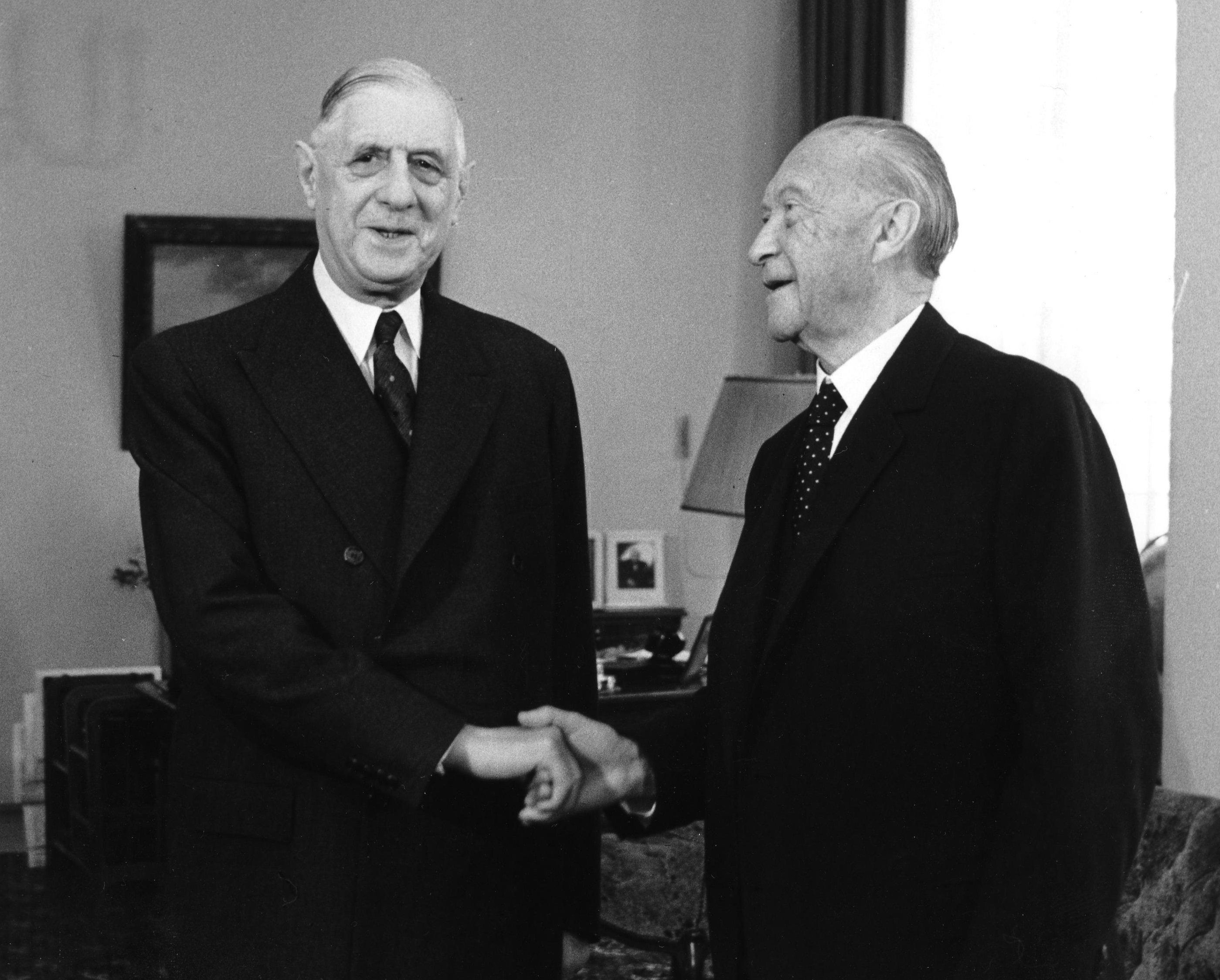
Chancellor Konrad Adenauer and French President Charles de Gaulle, 1963
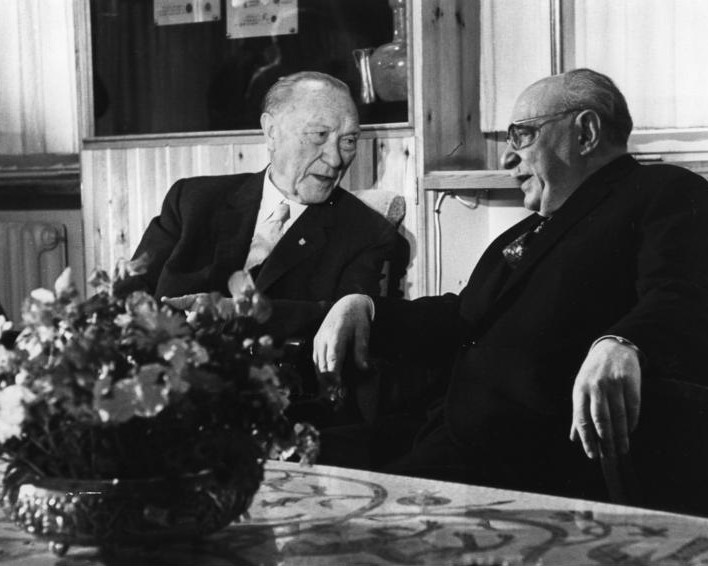
Konrad Adenauer with Israeli President Zalman Shazar, 1966
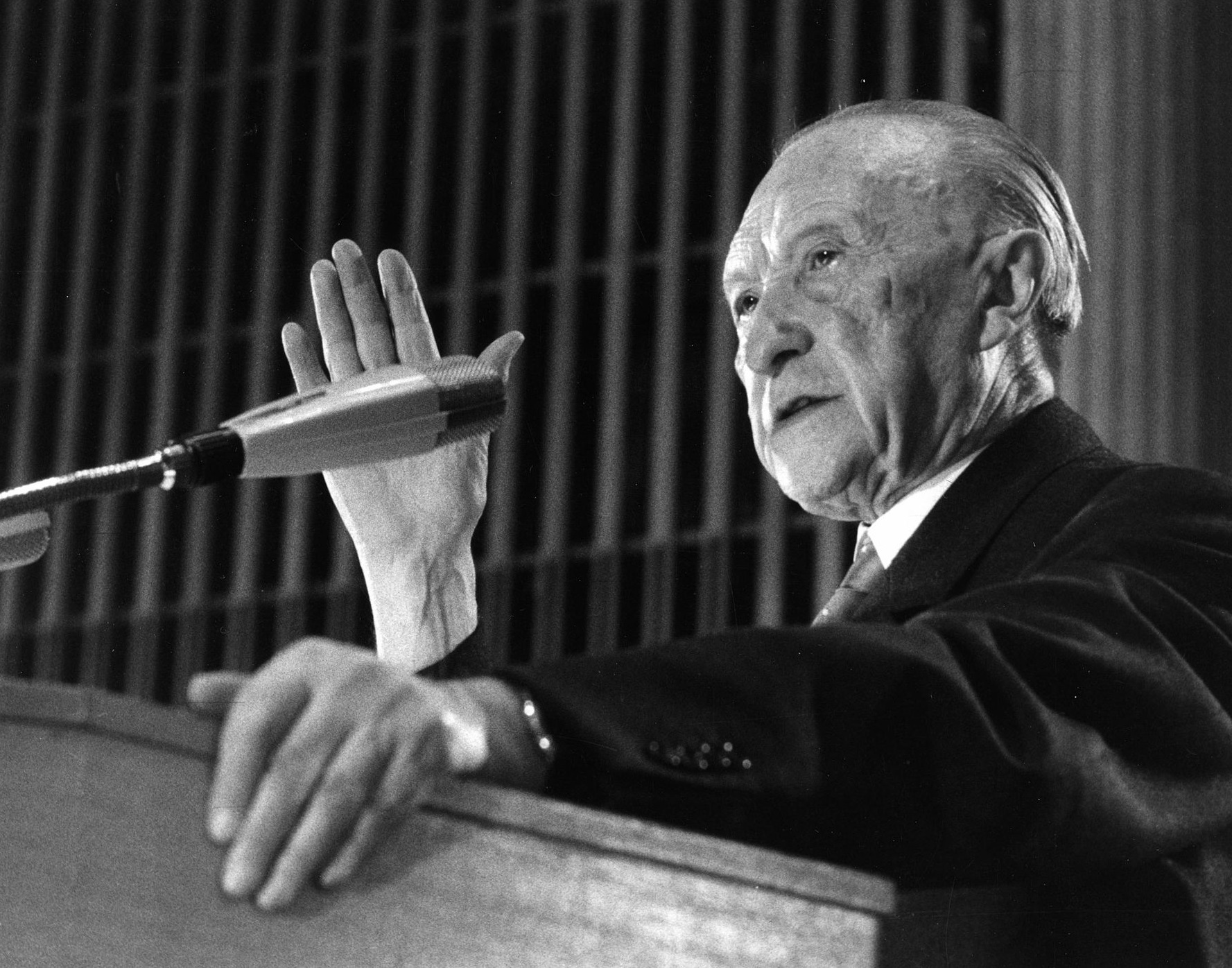
Konrad Adenauer delivering a speech at the CDU party rally in March, 1966